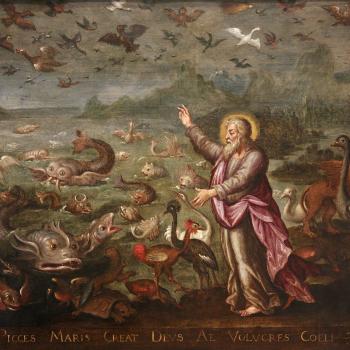The gospel text for the Feast of Epiphany offers a powerful invitation to us as we enter a new year and cross another threshold of time. The last few lines of the Matthew text offer us a template for an archetypal journey, that is, one we are all invited to make. We find ourselves in this text if we've ever longed to follow an inkling into the long night, knowing there were gifts awaiting us.
1) Follow the star to where it leads. The story begins with the magi calling upon the grace of night vision. Navigation in ancient times was largely by stars and constellations. Travelers had to know the night sky and trust the path through darkness and unknowing. As you cross this threshold into the New Year, what star beckons you in the night? As you stand under a black sky of unknowing, which star is shimmering? The star might be a particular practice, which when you commit to following it, will guide you in a holy direction.
2) Embark on the journey, however long or difficult. Herod gathers all his chief priests and scribes to find out more about this holy birth. Instead of searching out for himself, he sends the magi on his behalf. While Herod seeks outside advice and send others, the magi make the journey for themselves. Where are you tempted to trust others to make the journey for you, perhaps in reading books about the spiritual journey but never practicing yourself? How might you own your journey more deeply in the coming year?
3) Open yourself to wonder along the way. The scriptures tell us the magi were "overjoyed at seeing the star." I like to imagine them practicing this kind of divine wonderment all along the journey there. Moments that spoke to the sacred call. When we lose our sense of wonder our hearts become hardened and cynical, and we forget to believe in magical possibilities. As you enter into a new cycle of the earth's turning, how might you embrace the gift of wonder? What practices open your heart?
4) Bow down at the holy encounters in messy places. When the magi enter the messy, earthy place of the manger, it says they bow down and prostrate themselves. Prostration is an act of humility and honor, as well as full-body connection with the earth. As you encounter the sacred in the most ordinary of places, how might you express this embodied appreciation and honor?
5) Carry your treasures and give them away freely. The magi reveal the gifts they have brought of gold, frankincense, and myrrh. Gold represents the honor brought to a King, frankincense is a connection to the divine by raising our prayers heavenward, and myrrh a holy oil of anointing. What are the treasures you carry with you into the New Year? How might you offer them even more generously to others in the months to come?
6) Listen to the wisdom of dreams. The magi are warned in a dream not to return to Herod and they listen to this night wisdom. The scriptures are filled with stories of dreams delivering important messages and facilitating discernment. Our own night dreams arrive unbidden laden with mystery and meaning. In the new year, how might you honor these stories which emerge from the darkness and surrender of sleep?
7) Go home by another way. After receiving the gift of the dream, they choose another way home. In truth, after any journey of significance, there is no going back the same way as before. We always return with new awareness if we have been paying attention. What is the usual path you have traveled which has become suffocating? How does this year call forth new directions in your own life? Is there something symbolic of the new way home that you could carry with you like a talisman?
These stories carry ancient treasures for us: guidance and wisdom along the way. Ultimately we turn inward to discover our own call, our own treasures to share, the dreams emerging in silent spaces.
I invite you to find a window of time in these next few days to ponder this story and these questions in your heart and see what insights they awaken for you.
1/5/2015 5:00:00 AM





